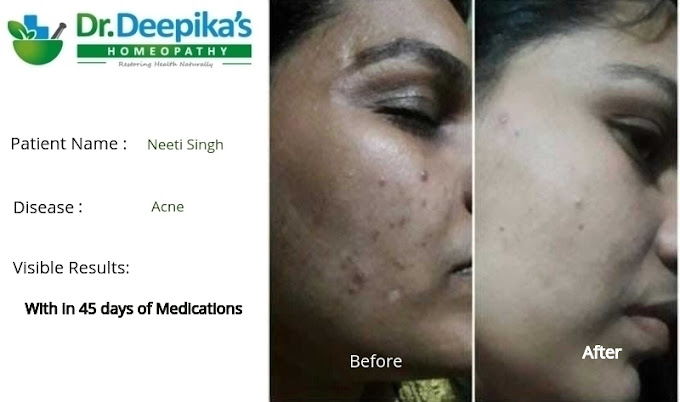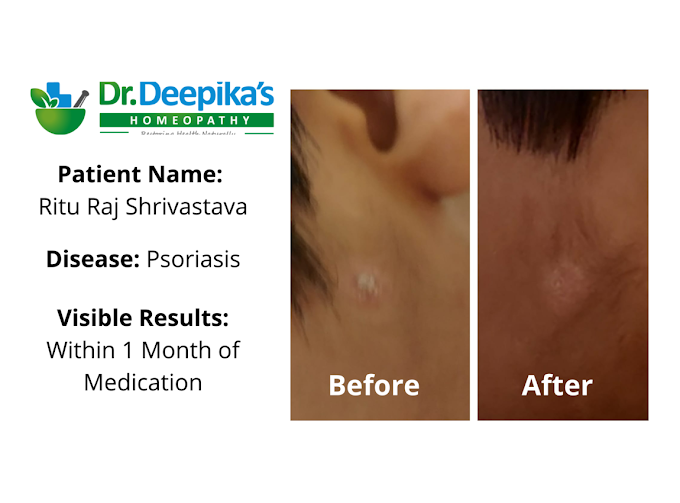Menopause Treatment at Dr. Deepika's Homeopathy: Empowering Women Through Natural Healing
Menopause Treatment Overview:
Menopause is a natural biological process that marks the end of a woman’s reproductive years. Dr. Deepika’s Homeopathy offers a reliable and natural approach to menopause treatment, focusing on alleviating symptoms, restoring hormonal balance, and promoting overall well-being during this transitional phase with homeopathic medicine for menopause.
Facts About Menopause:
Definition: Menopause is defined as the permanent cessation of menstrual periods for 12 consecutive months, marking the end of a woman’s fertility.
Age of Onset: Menopause typically occurs between the ages of 45 and 55, but it can vary for each woman. The perimenopausal stage, which precedes menopause, can last several years and is characterized by hormonal fluctuations.
Menopause is a significant phase of a woman’s life, and managing its associated symptoms is crucial for overall well-being. Dr. Deepika’s Homeopathy offers a reliable and natural approach to menopause treatment, focusing on alleviating symptoms, restoring hormonal balance, and promoting emotional and physical well-being. With personalized homeopathic remedies and comprehensive care, women can experience relief from menopausal symptoms, improved hormonal balance, and enhanced overall quality of life. Dr. Deepika’s expertise in homeopathy ensures that the treatment plan is tailored to each patient’s unique needs, providing support, guidance, and natural solutions for menopause.
Disclaimer:
The information provided here is for educational purposes only and should not be considered medical advice. Treatment for menopause symptoms should be sought under the guidance and supervision of a qualified healthcare professional or gynecologist. Individual responses to menopause treatment may vary, and it is important to consult with a healthcare provider for proper diagnosis, evaluation, and personalized treatment options tailored to your specific health needs and circumstances.
Types of Menopause:
Natural Menopause: This is the most common type of menopause and occurs when a woman’s ovaries naturally decrease their production of estrogen and progesterone, leading to the end of menstrual periods. Natural menopause typically occurs between the ages of 45 and 55, with an average age of onset around 51.
Surgical Menopause: Surgical menopause occurs when a woman’s ovaries are surgically removed, resulting in an abrupt decrease in hormone production. This can happen during procedures such as hysterectomy (removal of the uterus) or oophorectomy (removal of one or both ovaries). Surgical menopause can lead to more severe menopausal symptoms due to the sudden hormonal changes.
Premature Menopause: Also known as early menopause or premature ovarian insufficiency, this type of menopause occurs before the age of 40. It can be caused by factors such as genetics, autoimmune disorders, chemotherapy or radiation therapy, or certain medical conditions that affect ovarian function. Premature menopause may result in more pronounced symptoms and can impact fertility at a younger age.
Understanding the type of menopause a woman is experiencing is crucial for developing an appropriate treatment plan to manage symptoms and promote overall health and well-being during this life stage.
Symptoms of Menopause:
Hot Flashes: One of the most recognizable symptoms, hot flashes are sudden feelings of heat that can cause flushing, sweating, and rapid heartbeat. They can occur during the day or night (night sweats), disrupting sleep and daily activities.
Night Sweats: Similar to hot flashes but occurring specifically during sleep, night sweats can lead to drenched bedding and disrupted sleep patterns.
Irregular Periods: As menopause approaches, menstrual periods may become irregular, with changes in frequency, duration, and flow. Eventually, periods stop altogether, marking the end of the reproductive years.
Vaginal Dryness: Decreased estrogen levels during menopause can lead to vaginal dryness, itching, and discomfort during sexual intercourse. This can also increase the risk of urinary tract infections.
Mood Swings: Hormonal fluctuations can cause mood swings, irritability, anxiety, and depression. Women may experience emotional ups and downs during menopause.
Sleep Disturbances: Apart from night sweats, menopause can cause sleep disturbances such as insomnia, difficulty falling asleep or staying asleep, and waking up feeling tired.
Fatigue: Many women experience fatigue or a lack of energy during menopause, which can be exacerbated by sleep disturbances and hormonal changes.
Weight Gain: Changes in hormone levels can contribute to weight gain, especially around the abdomen. Slower metabolism and lifestyle factors may also play a role.
Changes in Libido: Some women experience a decrease in libido (sex drive) during menopause due to hormonal changes, vaginal dryness, and other factors.
Bone Loss: Decreased estrogen levels can lead to bone loss (osteoporosis), increasing the risk of fractures and bone-related problems.
It’s important to note that not all women experience the same symptoms or severity during menopause. Some may have mild symptoms, while others may find them more challenging to manage. Seeking medical guidance can help in understanding and addressing individual symptoms effectively.
Diagnosis of Menopause:
Diagnosing menopause involves a comprehensive evaluation of symptoms, medical history, and hormonal levels. Dr. Deepika follows a meticulous approach that may include:
Medical History Assessment: A detailed discussion about the patient’s symptoms, menstrual patterns, and medical history helps in understanding the nature and stage of menopause.
Physical Examination: Dr. Deepika may perform a physical examination to assess the patient’s overall health, check for any signs of hormonal changes, and evaluate specific concerns associated with menopause.
Hormonal Testing: Blood tests may be conducted to measure the levels of certain hormones, such as follicle-stimulating hormone (FSH) and estrogen. These tests help confirm the hormonal changes indicative of menopause.
Homeopathic Treatment for Menopause:
Dr. Deepika’s Homeopathy offers a natural and holistic approach to menopause treatment. Homeopathic remedies, derived from natural substances, are safe, gentle, and non-toxic. The treatment focuses on alleviating menopausal symptoms, restoring hormonal balance, and promoting overall well-being. The homeopathic treatment may include:
Individualized Assessment: Dr. Deepika conducts a detailed assessment, considering the patient’s specific symptoms, medical history, and the unique characteristics of their menopause. This helps in tailoring the treatment approach accordingly.
Customized Remedies: Based on the assessment, Dr. Deepika prescribes personalized homeopathic remedies that address the individual’s unique symptoms and aim to restore hormonal balance. These remedies work by stimulating the body’s self-healing mechanisms and supporting the natural transition through menopause.
Symptom Management: Homeopathic remedies are selected based on the individual’s specific symptoms, such as hot flashes, mood swings, or vaginal dryness. These remedies help alleviate discomfort and promote emotional well-being.
Hormonal Regulation: Homeopathic remedies are chosen to stimulate the body’s hormonal regulation mechanisms, aiming to restore balance and alleviate hormonal imbalances associated with menopause.
Lifestyle Recommendations: Dr. Deepika may offer guidance on lifestyle modifications, including dietary changes, exercise, stress management techniques, and relaxation practices, to support overall well-being during menopause.
Follow-up and Monitoring: Regular follow-up consultations are conducted to monitor the progress of the treatment, assess the effectiveness of the homeopathic remedies, and make any necessary adjustments to the remedy prescription. Dr. Deepika’s expertise ensures that the treatment plan is tailored to each patient’s specific needs.
HOMEOPATHY BELIEVERS



TESTIMONIALS
EXCELLENTTrustindex verifies that the original source of the review is Google. GoodPosted onTrustindex verifies that the original source of the review is Google. Docters are very kind and help full Providing the best results and cure Really happy to share thi reviewPosted onTrustindex verifies that the original source of the review is Google. I approached her for my sinus treatment which I am having for years and she cured 90% of it in just 3 sittings and her approach is something I haven't seen with any of the doctor I met before, she is really good.Thank you so much doctorPosted onTrustindex verifies that the original source of the review is Google. She is best homeopathic doctor at sector 62, I was suffering from chickenpox , smallpox issue.. I got relieved from her medicine in 7 days.. Thanks doctorPosted onTrustindex verifies that the original source of the review is Google. What a miracle!! I contact Dr. Deepika's homeopathy for the treatment of external hemorrhoids. Result was unbelievable, withing 7 days it cured. Thanks for wonderful service.Posted onTrustindex verifies that the original source of the review is Google. Dr deepika Best doctor for kidney stone in noida.. You will get garateed relief within 30 to 45 days of medicine.. I got relief within 1 -2 doses only.
TREATMENT RESULTS







